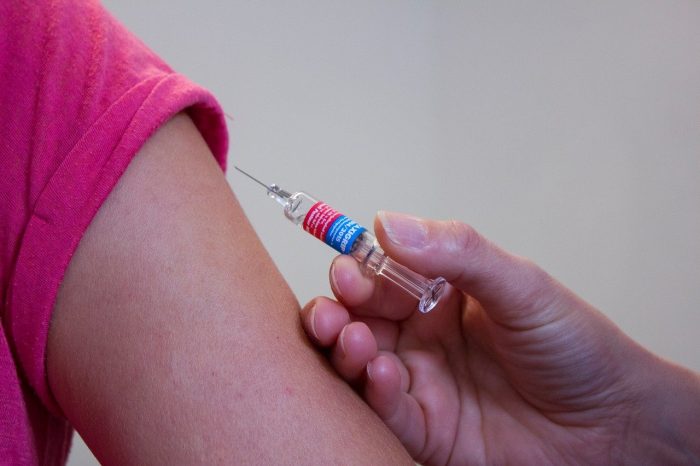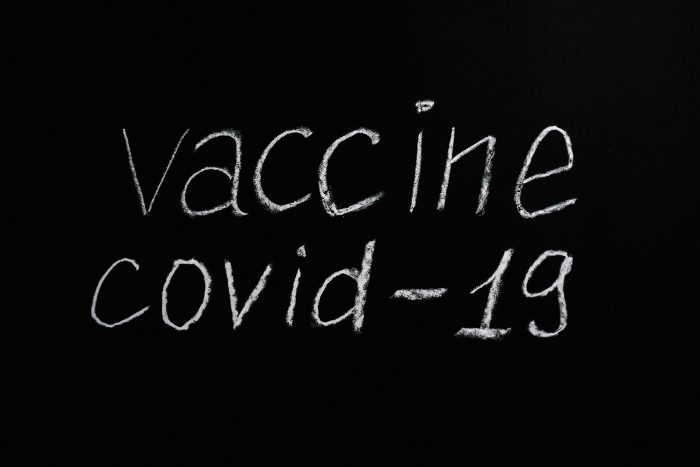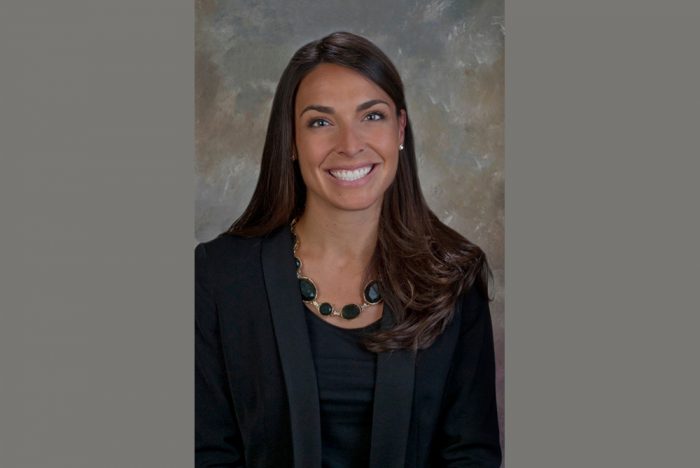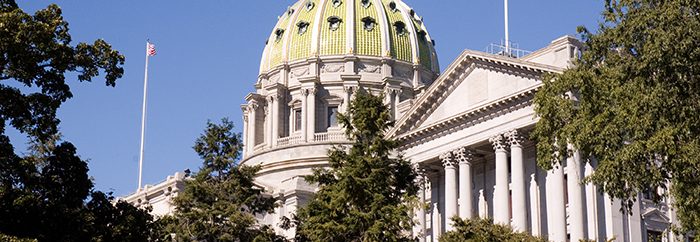FOR IMMEDIATE RELEASE
February 19, 2021
Harrisburg, PA – The Wolf Administration today provided an update on Pennsylvania’s progress administering COVID-19 vaccines to residents and staff of long-term and congregate care facilities eligible in Phase 1A. To date, more than 193,000 residents and staff of nursing facilities, personal care homes, and assisted living facilities have received their first COVID-19 vaccine dose through the federal Pharmacy Partnership Program. Additionally, nearly 10,000 residents and staff of other long-term and congregate care facilities licensed by the Department of Human Services (DHS) have received their first vaccine dose through the partnership with Pennsylvania-based Rite Aid, and this partnership is being expanded to include residential drug and alcohol treatment providers licensed by the Department of Drug and Alcohol Programs (DDAP) who identified as needing a vaccine provider.
“Vaccinating residents and staff of long-term and congregate care facilities – people who are often most at-risk of a severe case of COVID-19 if exposed – protects our most vulnerable residents who are not leaving their facilities and homes themselves but are most affected by rates of COVID-19 in our broader community,” said DHS Secretary Teresa Miller. “This progress is a much-needed reprieve for long-term care facilities that have been particularly challenged by COVID-19 and community transmission, and it’s a line of defense for our health care system as a whole.”
Pennsylvanians living in these facilities eligible for the federal program are receiving vaccines from CVS Pharmacy and Walgreens. As of February 19 all skilled nursing facilities have had their first round of COVID-19 vaccine doses, CVS has completed 100 percent of the second dose clinics and Walgreens is working to vaccinate the remaining second dose clinics before all nursing facilities are complete. More than 70 percent of personal care homes and assisted living facilities covered through the partnership have received their first round of vaccine doses, and CVS and Walgreens expect to finish first rounds before the end of the month. To date, the partnership has administered:
| Vaccinations as of Feb. 19 | First Doses | Second Doses | Total Doses |
| CVS Pharmacy | 161,935 | 86,567 | 248,502 |
| Walgreens | 31,358 | 9,788 | 41,146 |
“Through the work of the Federal Pharmacy Partnership’s (FPP) we are able to ensure every nursing home resident and staff member who wants a vaccine can receive it – and we are proud of the progress thus far,” Acting Secretary of Health Alison Beam said. “As nursing homes finish administering the remaining second dose clinics, we know that when the federal government’s mission for the FPP program is complete we will remain committed to getting vaccine to incoming residents and staff in the future. The Department of Health and long term care facilities remain vigilant and will continue to vaccinate through existing relationships with health care providers, just as with routine medication and flu vaccinations.”
Other long-term and congregate care settings included in Phase 1A of Pennsylvania’s Interim Vaccination Plan, including group homes for people with disabilities; residential treatment facilities and long-term structured residences for adults with behavioral health needs; and private psychiatric hospitals, are not included in the federal partnership but are still in the Phase 1A due to the risk of COVID-19 outbreaks in congregate settings.
These settings serve people who have co-occurring medical needs that put them at higher risk of severe cases and death if they contract the virus. Some personal care homes and assisted living facilities also were not enrolled in the Federal Pharmacy Partnership program and may be served by the Rite Aid partnership for DHS-licensed facilities.
Vaccine clinics for these facilities are being held on-site for facilities where people served are not able to travel off-site. Additional clinics are being scheduled at centralized locations when possible to accommodate more facilities and community group homes, which are typically small, private residences. To date, the partnership has administered:
| Facilities with First Doses Administered | Total Doses Administered to Date | Facilities Scheduled for Vaccination | Expected Doses through Scheduled Clinics | |
| Office of Developmental Programs Facilities | 1,512 | 4,978 | 102 | 753 |
| Office of Long-Term Living Facilities | 83 | 3,539 | 32 | 1,920 |
| Office of Mental Health and Substance Abuse Services Facilities | 13 | 1,342 | 13 | 988 |
Nearly 9,900 people have been vaccinated so far through this partnership. Approximately 3,660 people living and working in 147 DHS-licensed facilities and group homes are currently scheduled to be vaccinated through this partnership. Expected reach of this partnership has shifted as some facilities have ended up receiving vaccinations through other contacts.
Additionally, the Rite Aid partnership is expanding to vaccinate residential drug and alcohol treatment providers licensed by DDAP who identified as needing an established partnership with a vaccine provider through a survey administered by the department. Approximately 450 people will be vaccinated at 12 scheduled clinics at residential treatment providers where people served are not able to travel off site through early March.
“Often, residential drug and alcohol treatment providers are forgotten among other congregate care settings, however some of Pennsylvania’s most vulnerable citizens are receiving treatment for the disease of addiction in these facilities,” said DDAP Secretary Jen Smith. “The Rite Aid partnership is another tool in our COVID-19 toolbox to minimize community transmission and ensure all health care providers have established partnerships with vaccine providers.”
Learn more about the partnership with Rite Aid and view more data here.
COVID-19 Vaccine Distribution
Every day tens of thousands of Pennsylvanians are receiving the COVID-19 vaccine. Vaccination numbers for Pennsylvania do not include Philadelphia, which is its own jurisdiction, or federal facilities, which are working directly with the federal government.
- This week, a total of 326,850 doses will have been allocated through February 20:
- 183,575 first doses will have been allocated this week.
- 143,275 second doses will have been allocated this week.
- To date, of the 2,766,400 doses allocated through February 20, we have administered 1,867,240 doses total through February 18:
- First doses, 86 percent (1,387,443 administered of 1,610,175 allocated)
- Second doses, 41 percent (479,797 administered of 1,156,225 allocated)
Vaccine Order signed Feb. 12
Last week, Sec. Beam signed an order outlining appropriate steps and recognized best practices to ensure vaccine providers deliver 80 percent of doses within seven days of receipt, provide a phone number where people can speak to an individual to make an appointment and report race and ethnicity data for everyone vaccinated.
Your Turn tool
Last week, Pennsylvania launched the Your Turn tool to help everyone understand where they fall in the vaccination prioritization effort. The Your Turn tool directs eligible residents to the department’s vaccine provider map online to locate a trusted local provider and schedule a vaccination appointment. Your Turn also allows people to register to receive updates about vaccine distribution and allows the department to let you know when it is your turn to get vaccinated.
In addition to the Your Turn tool and while vaccine supply from the federal government remains limited, the Department of Health is working to ensure the vaccine is provided in a way that is ethical, equitable and efficient.
- A commonwealth COVID-19 vaccination guide explains the current process for getting one. Pennsylvanians with questions about the vaccination process can call the Department of Health hotline at 1-877-724-3258.
- Vaccine provider map to find a COVID-19 vaccine provider near you.
- All of the locations that received vaccine and how much they have received can be found on the COVID-19 Vaccine Distribution webpage.
- Vaccine dashboard data can also be found on the website to find more information on the doses administered and showcase demographic information.
- Pennsylvanians can provide feedback on the Pennsylvania COVID-19 Interim Vaccination Plan by clicking on the Plan Feedback Form square under Popular Vaccine Topics here.
- Frequently asked questions can be found here.
The Wolf Administration stresses the role Pennsylvanians play in helping to reduce the spread of COVID-19:
- Wash your hands with soap and water for at least 20 seconds or use hand sanitizer if soap and water are not available.
- Cover any coughs or sneezes with your elbow, not your hands.
- Clean surfaces frequently.
- Stay home to avoid spreading COVID-19, especially if you are unwell.
- If you must go out, you are required to wear a mask when in a business or where it is difficult to maintain proper social distancing.
- Download the COVID Alert PA app and make your phone part of the fight. The free app can be found in the Google Play Store and the Apple App Store by searching for “covid alert pa”.
Updated Coronavirus Links: Press Releases, State Lab Photos, Graphics
- Daily COVID-19 Report
- Press releases regarding coronavirus
- Latest information on the coronavirus
- Photos of the state’s lab in Exton (for download and use)
- Coronavirus and preparedness graphics (located at the bottom of the page)
Community preparedness and procedures materials
MEDIA CONTACTS: Barry Ciccocioppo, Health – ra-dhpressoffice@pa.gov
Erin James, DHS – ra-pwdhspressoffice@pa.gov
Rachel Kostelac, DDAP – 717-547-3314


















